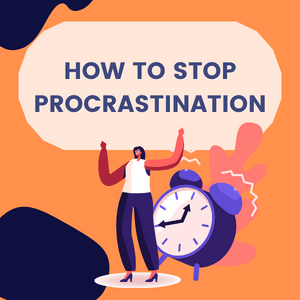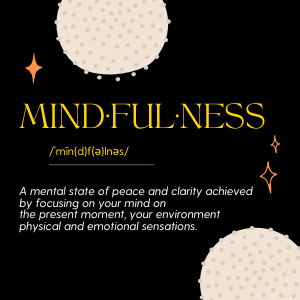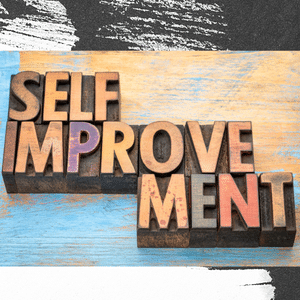

What is greed? The word “greed” is derived from the Latin verb “greater,” which means “to strive or to thirst for.” Greed is the desire to acquire wealth. This desire drives most people to work hard day after day to obtain what they desire. For example, someone who has a considerable amount of money to start a business will work countless hours to achieve that.
The dictionary definition defines greed as “a deep yearning for more wealth.” This is an extensive definition of greediness. It also could be interpreted as “a thirst for increased wealth.” However, the deeper meaning of greed “the want of possessing more possessions.” In other words, greed is the desire to have more possessions – including, but not limited to, money, health, relationships, and others.
Greed, like most negative emotions, can be highly destructive. Avarice, for example, leads to massive destruction when individuals waste large amounts of time and money acquiring the things they desire, with absolutely no regard for the actual worth of the objects they are receiving. This, of course, eventually results in the person being impoverished and miserable. In contrast, longing individuals do not care about the actual value – they care about the potential gain they may achieve by acquiring these possessions.
Sayings such as “A thing known by a few, not known by all” and “A coin of dishonest persons is lost” clearly show us that greed can lead to sour circumstances and eventually ruin a person’s financial situation.
However, it is important to realize that there are many different types of desire. Not all individuals experience the same kinds of covetousness. For instance, some individuals may only experience desire when it’s used dishonestly. While this behavior is considered acceptable, other individuals may look down upon this form of selfishness with disdain.
Many individuals, on the other hand, will always desire more wealth. The difference between the two forms of greed is simply that the desire to possess more possessions is necessary for survival while wasting time and money by avarice is not. Because life is finite, each individual must choose to desire more wealth or desire less wealth. Suppose an individual can manage his or her desires appropriately. In that case, he or she will be able to have the things that he or she desires.
For example, when reading the definition of greed, one needs to look for the word “imminent.” This term indicates that greed is already near its conclusion. This, therefore, makes greed almost inevitable, as the outcome slowly sets in stone. However, suppose someone can manage to stay greedy for the long-term and make good use of the opportunities that come along. In that case, he or she can genuinely say that he or she has managed to become greedy for the long term.
Greed is so destructive. It destroys everything. ~ Eartha Kitt
Source: https://proverbicals.com/greed
One of the most famous sayings that can define greed is Proverbs 11:10. This proverb states: “Do what ye will, ye shall receive.” Although this may seem like just another saying or proverb, it contains a lot of wisdom. It teaches that one should not allow greed to get out of control, especially when it comes to the things that people wish for most, such as prosperity and happiness. Another great proverb that can describe greediness is Proverbs 30:6, which states: “Better that than receiving little, which comes twice.”
There are also many more words that can describe greed and its corresponding bad characteristics. The best thing to do is keep in mind that having the desire for wealth is not equivalent to having wealth. Just because you have the desire to have something does not mean that you will obtain it. And likewise, just because you have lots of wealth does not mean that you will be able to enjoy wealth for the rest of your life.
The downfall of most humans during their lives is due primarily to their out of greed. Greed, or gluttony, is an unnatural drive for excessive amounts of food and material possessions.
While there’s nothing wrong with wanting to make more money to better yourself or make other people better off, gluttony often goes hand-in-hand with selfishness, which is the total opposite of what should be considered a positive motivation.
When greedy people are only trying to get more out of life rather than experiencing any true freedoms, the two concepts, when acting together, create a vicious cycle that ends in disaster. When someone works out of greed, they are only trying to get more from those whom they’ll personally benefit from.
One example can be illustrated with a simple event that anyone can relate to watching one’s favorite basketball team play on television. Usually, people sit through the entire game without mentioning how entertaining it was, even when they are critical of certain aspects of the team.
However, at the end of the game, this same individual will tweet about how they felt about certain parts of the game and how they were affected by the outcome. While it may seem harmless to tweet about things after the fact, it tells us a lot about a person’s true motives. Those who act out of greed have a desire to take more rather than give.
What happens, then, if a person decides to buy more because they “needed” to be more?
A variation on the above scenario occurs when a person purchases an excessive amount of something because they “want” to have it. This type of gluttony is similar to the extreme version of the “greed” description; however, the difference is that the giver is aware that they are harming others to get what they desire.
Then, the true gluttony is not having excess; but rather being obsessed with having too much. Those who have an excessive need for food or a lack of willpower in controlling urges often exhibit characteristics of gluttony. They know that what they are doing is not normal, but they refuse to do anything.
When gluttony becomes an obsession, it can begin to affect other areas of a person’s life. Work, for instance, becomes difficult because people who exhibit extreme greed will not settle for less than what they want. Those who think that they can get away with a little bit of gluttony may find that they cannot function properly at work. Work-related injuries are common, and the companies paying workers end up having to cut costs to keep them working..
Those who cannot control their impulses sometimes turn to drugs or alcohol, which further adds to their problems. Those who eat excessive amounts of food that is potentially harmful can develop serious health problems. In extreme cases, some people can develop severe eating disorders.
Some of the most unfortunate people on the planet are those who are suffering from gluttony or greed. They need to realize that what they are doing is not normal and causing them much harm by their actions. By committing to change, these people can get the help they need and get back to being happy and contented.
If a person can not control their lust for money, it could be due to gluttony. A person can become obsessed with acquiring more things without thinking about the cost, putting their health at risk in the process.
The best solution for someone who is into excessive materialism is to learn to cut back or entirely stop their consumption. This could help to prevent the onset of even more health problems.
The Lust for Money by Jim Rohn discusses some of the pitfalls to avoid when building wealth. One of the main points is that you should not waste time and energy focusing only on what you want, because you will be disappointed.
Most people focus on the here and now or the future, the number one reason for their misery and unhappiness. If you are determined to achieve wealth, you must set aside time each day to focus on what you want, which is the here and now.
The next thing you will need to do is to develop the right mental attitude. Wealth affirmations are great because they are positive and build up your self-esteem while at the same time you are emphasizing the future.
We all know that money cannot buy happiness, but it can undoubtedly enhance your joy if you use it in the right way to attract the things you want.
A common mistake that many people make is focusing on what they do not have. Like most people, you probably spend a lot of time and money looking for wealth. This is fine, but you want to make sure you do not lose sight of the fact that you already have what you need, so you do not need to spend money to get more.
There are also some disadvantages to living the lust for money. One of the disadvantages is that your mind will start to get obsessed with the idea of having wealth, and this causes you to focus a lot on your wants rather than your needs.
Another disadvantage is that you might get caught up in the excitement of the pursuit of wealth. You might be so focused on getting more that you get stressed out and lose focus on the things that matter most.
The truth is, your wants are secondary to your needs. To have a happy and successful life, you must learn to put your priorities in place. It would help if you started putting your desires last and then developed the ability to find ways to balance your needs with the needs of others.
The most important thing you should do to develop the skills you need to live your dreams truly is to get in touch with the true inner core of who you are.
People who have mastered the techniques that allow them to tap into the abundance mindset enjoy all kinds of success. They have found that by focusing on their existing opportunities, their life has changed dramatically for the better.
Wealth affirmations like “I am rich enough, I have what I want,” or “The money is in the money.” are just ways of describing what you already feel. Once you learn how to tap into the abundance within you and turn that abundance into financial security, you will see that everything else in life will fall into place.
Wealth affirmations like “I have enough, I am rich enough,” “My situation is secure enough, I do not have to work hard,” and “I am a master of my own finances” are great wealth affirmations. Think about it for a second. Do you ever say these things when you think about yourself?








